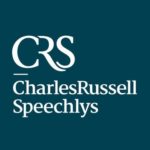Continue reading "Wills: Proving missing wills"
Wills: Proving missing wills


Continue reading "Wills: Proving missing wills"
This was a probate claim by the testator’s children (minors with their mother, the testator’s ex-wife, as litigation friend). The first defendant (who was the only active defendant) was the testator’s new partner.
The claimants sought to propound a will from 2009. The first defendant sought to propound a will from 2018. The first defendant claimed that the 2018 will had been signed by the testator on 27 March 2018 with the intention of giving effect to it as a will, and that he had acknowledged his signature in the presence of witnesses who attested and signed the document in the ...
William Reid (the deceased) died on 20 March 2018. He left a will dated 20 December 2004 and codicil dated 8 February 2012 (together the will), which appointed the claimants, Nicholas Parsons and Mark Hill (respectively the deceased’s solicitor and land agent), as executors and trustees, and left the residuary estate on discretionary trusts for classes including his children and grandchildren. The defendants, Stephen Reid and Judith Shaw, were the deceased’s children. The deceased also left a letter of wishes which expressed the wish that payments be made to Stephen reflecting various mo...
Mr Bracey passed away on 27 May 2018, leaving a will dated 31 July 2015. Under that will, Mr Bracey appointed the second defendant as his executrix and trustee. The grant of probate issued on 16 March 2020 to the second defendant. Mr Bracey had been predeceased by his wife, who, like Mr Bracey himself, had been unwell at the time at which Mr Bracey had executed his will. The case related to a dispute between Mr Bracey’s son (the claimant) and his daughter (the first defendant) concerning the proper construction of the will and whether it should be rectified.
The first issue was wh...
Sidney Albert Johnston (the deceased) died on 27 March 2017. In prior proceedings, the deceased’s son, Colin Johnston (Colin), had brought a successful claim against the deceased’s estate under the Inheritance (Provision for Family and Dependants) Act 1975 (the 1975 Act claim).
Following trial of the 1975 Act claim, Colin received a lump sum award of £125,000 (the award) and an order for costs.
A point of importance in the 1975 Act claim had been historic litigation between Colin and the deceased. This had resulted in a costs order being ...

Continue reading "Wills: The effect of joint tenancies"

Continue reading "Wills: High Court rules against multimillionaire’s 2014 will"

Continue reading "Wills: Documentary evidence trumps witness testimony"
Under a settlement made in 1974 by the deceased’s father, the deceased became the life tenant of a fund, over which property she had a power of appointment exercisable in favour of her children by deed revocable or irrevocable, or by will. In 1981, by a deed of appointment with effect from her death, the deceased appointed the fund between her three children. By a deed of revocation in 1997, expressed to be supplemental to the settlement and the 1981 deed of appointment, with effect from her death, the fund was appointed on trust for only two of her three children. The deceased made her ...